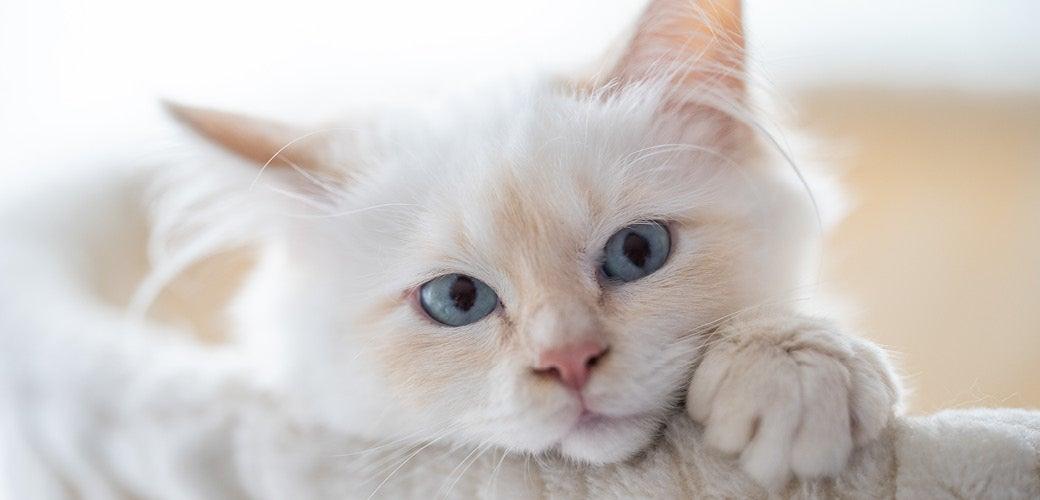
Is Your Cat Spraying Inside?

Having your cat spraying indoors isn’t pleasant. They’re unlikely to be doing it out of malice, so if it’s something you’re noticing, here’s what you can do.
Cat spraying can be an unpleasant experience for everyone in a home. That’s especially true if you’re not sure why your cat is doing it and it’s a new behaviour. Cats spray for a variety of reasons and it’s important you get to the root of the issue so you can address it.
Here are four suggestions on what to do if your cat is spraying indoors.
1. Work out the reason
One of the main reasons cats spray is to mark their territory. However, there are other motivations why your cat may be spraying indoors. Cats also spray if they’re stressed or anxious - which in itself could be caused by a number of things.
For example, Have you recently moved, changed the furniture in your home, introduced a new person or pet, or has another cat moved into the neighbourhood? Changes to their living arrangements, or perceived threats to their security, are legitimate reasons why your cat may be spraying.
Once you understand why your cat is spraying, you’ll be in a better position to identify a solution.
2. Find ways to calm or distract your cat
If your cat is stressed, there are products you can get to help calm them. These include special collars, sprays, diffusers, and even supplements.
You can also try and keep your cat distracted by giving them plenty of exercise, or toys to play with. Keeping a regular schedule and making sure you give them plenty of attention can also help alleviate any anxiety that’s causing them to spray and help them feel happier in their home.
3. Visit the vet
Sometimes the cause and treatment may remain elusive. If you’ve tried the above, or are concerned about your cat’s health at all, it’s a good idea to take them to the vet to get them checked and diagnosed.
If the cause for the spraying is stress and anxiety, your vet may be able to prescribe treatments to help keep them calm. If nothing else, your veterinary professional can assure you there’s nothing wrong with your cat and give you additional advice or resources to help you prevent your catting spraying indoors.
4. Clean the affected areas thoroughly
Finally, if your cat has sprayed indoors, it’s important to clean the area thoroughly. This is not only for your own comfort but also to discourage your cat from doing it again.

